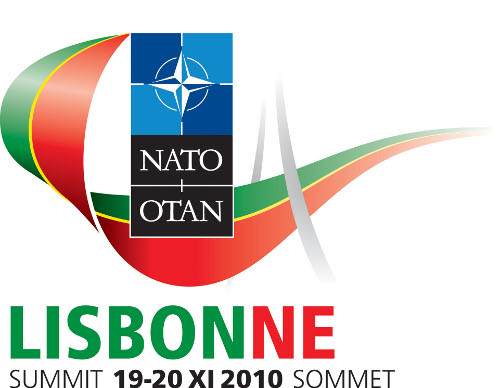
The recently concluded NATO summit did all the right things: outline an ambitious role for NATO in a complex world; renew and recalibrate NATO’s role in Afghanistan; relaunch the NATO-Russia Council; and even move the ball forward on missile defense. This will now be followed by negotiations on implementation documents. To someone who has worked on these issues for over two decades, it is hard to think of anything that should have been done differently.
In principle, this is an extremely strong set up for NATO and the future – as long as the real world doesn’t intrude. But that’s always the problem: the real world does intrude. And in 2010, the gaps between the vision held by transatlantic security experts, and the actual beliefs and actions of Allied publics and governments is as wide as it has ever been. Until we are able to confront the real world, the best-laid policies will remain just that.
Intelligent balance on security issues
- Home and away – i.e., affirming that NATO is concerned with both Article 5 territorial defense (including against missiles), and with crisis management outside NATO’s territory, such as in Afghanistan;
- Old threats and new – i.e., being prepared to deal with traditional military threats (even nuclear deterrence) while integrating civil-military capacities and facing new challenges, including cyber and energy security;
- Reassurance and engagement: i.e., assuring NATO’s eastern Allies that we are committed to their defense, while simultaneously reaching out to Russia as a strategic partner.
Right idea. Who will implement it?
This is a demanding set of missions for NATO, and fulfilling it will require massive amounts of sustained political, military, civilian, and financial investment. But there’s the rub: despite the words on the page, in practice, NATO nations are slashing defense spending and seeking to limit their engagements. This may soon include the United States, where we are debating the withdrawal of combat brigades based in Germany, and where efforts to get America’s deficit under control will not leave defense spending unscathed.
Publics in western Europe perceive no threat to their security other than the economy, and publics in Central and Eastern Europe – though worried about Russia – are in no financial position to underwrite NATO. The American public, partly reflected through a Tea Party lens that thinks Washington is out of control, is feeling less expansive about foreign engagements. The vision in the NATO Strategic Concept is the right one – but who will implement it?
The reality in Afghanistan
Or take Afghanistan. NATO has very sensibly flipped the July 2011 “withdrawal” date into a strategy for transitioning to Afghan leadership in 2014. It means a continued, robust NATO engagement, with emphasis on training Afghan security forces and improving governance.
Here again, the real world intrudes. Given illiteracy, corruption, poor governance, economic devastation, drugs, Pakistani safe havens, and more — how can we have any confidence that Afghanistan will be capable of leadership in 2014, when they are so far from it in 2011? The new deadline will arrive before we know it.
In the meantime, our publics – including in America – are increasingly skeptical that the mission in Afghanistan is achievable. One can already hear the rumbling: “We have been there for nine years, spent a trillion dollars, lost thousands of lives, are supporting a corrupt government, and the terrorists aren’t even there.” Faced with this, can we sustain the long-term commitment needed to succeed?
“Success” requires the will to succeed. What psychological message will the Taliban, the Afghan population, or even our own publics, take from the summit? Are we “in this to win,” as General Petraeus put it, or “in this to transition?”
Russia isn’t interested
And finally, there’s Russia. It is good policy and good sense for NATO and Russia to work together where they share common interests. This is the case on transits to Afghanistan, and should be the case on missile defense. But in the real world, working together with Russia requires a Russia that wants to work with NATO. Even today, Russia holds a zero-sum view of its interests with respect to NATO.
We have tried to launch NATO-Russia cooperation many times before – including at summits in 1997, 2002, and 2008. It is worth trying again. Yet over that time, Russia has retrenched on democracy, occupied parts of Georgia, stopped implementing the CFE Treaty (Treaty on Conventional Armed Forces in Europe), opposed missile defense sites in Central Europe, claimed a sphere of influence over its neighbors, and listed NATO as the number one threat to Russia in its national security concept.
One can only admire the accomplishment of NATO diplomats and politicians in crafting a well-written and substantive Strategic Concept, Afghanistan policy, and outreach to Russia. Yet the same real-world challenges we faced before the summit will face us afterward. The test now is to put real meaning behind the summit’s words.. At this stage, one cannot escape the feeling that the real world will trump these best laid of plans.
Kurt Volker is a senior adviser at the Atlantic Council and member of the Council’s Strategic Advisors Group. He is also a former US ambassador to NATO and current managing director of the Center for Transatlantic Relations at Johns Hopkins’ School of Advanced International Studies. This article originally appeared in the Christian Science Monitor.
This article is part of a New Atlanticist discussion – The 2010 Lisbon Summit: A New Atlanticist Forum – on the Summit’s expectations, areas of focus, and potential outcomes.
Image: Lisbon%20Logo%20500_0_0.jpg
